- Home
- Lisa Gardner
Never Tell Page 4
Never Tell Read online
Page 4
But right now, the man’s eyes widen with disgust. Then he turns and hastily walks away . . .
Jacob has his games. But I have my rebellion. He might always win in the end. But I’m not completely broken yet.
“All right, all right,” Jacob announces to the milling people. “Girl never could hold her beer. Come on, now, not the first time any of you have seen someone puke outside a bar. Move along.”
He grips my arm. I’m shaking uncontrollably, too weak to even stand.
But the not-quite-stranger is gone. The immediate threat is over.
Which leaves me with just Jacob.
“You did that on purpose!” he growls low in my ear.
“I had to. The thought of leaving you . . . Please. You’ve been gone for a week. I just want to be with you. Only you.”
He narrows his eyes, studies me hard.
“Bitch,” he says, but there’s no heat left in his voice.
He pulls me to standing. I lean against him heavily. After a moment, his arm goes around me.
And for one more night, I survive.
* * *
—
SIX YEARS LATER, Cambridge, Mass. I’m still standing in the kitchen of my apartment. Images of the murdered husband’s face appear, disappear, reappear, on the TV across the room. Followed by snapshots of his wife, the outside of their home, miles of yellow crime scene tape. I’m shaking. As hard as I shook that night, so long ago.
Now, I fist my hand and force myself to focus. Deep breath in, deep breath out. Jacob is gone. Jacob is dead. Jacob can never hurt me again.
The man on TV, Conrad Carter, I never saw him after that night. And now he’s dead, too. More power to his wife.
Except that so many thoughts hit me at once, I have to grab a chair for support.
It takes me a bit, but I finally get my legs to move. I retrieve my cell from the coffee table. I make a single call.
“Samuel, it’s me. You know how I said I’d tell you about my time with Jacob once and only once, and then I’d never speak of it again? I lied.”
CHAPTER 4
EVIE
IT’S AFTER MIDNIGHT WHEN THEY take me to the police headquarters. I have a brief impression of a monstrous glass building; I think I’ve seen pictures of it on TV. The officer leads me through a vast lobby, then through a warren of hallways. First stop, fingerprints. I was never printed the first time. Ironically enough, it’s my job as a schoolteacher that finally put me in the system. I had to have a background check to chaperone field trips, after-school activities. I’d been nervous then. What if they ran my prints and the previous incident—“nothing but an unfortunate accident,” my mother whispers—popped up for all to see? You’ll be fine, Conrad had kept telling me. You were just a kid; no charges were even filed.
In the end, that’s what saved me—no charges were filed, meaning I had no criminal record, versus a sealed juvie record, which could come back to haunt a person later.
After scanning each fingertip into the digital machine, the uniformed officer—Bob, someone calls him—leads me to a clinical-looking room where a woman in a lab coat swabs both my hands with some kind of substance, then uses a metal file to remove scrapings from beneath my nails. “I’m going to require her clothing,” she informs the officer, who nods as if this is no surprise.
If they’re taking my clothes, what does that leave me with? But no one bothers to tell me, and I can’t bring myself to ask.
I’m tired. The shock, adrenaline, something wearing off. Mostly, I feel like a pregnant woman, up way past her bedtime and deeply self-conscious that it’s not just me the police are arresting, but my unborn child.
I haven’t even met my baby yet, and I’m already filled with so many regrets.
Upstairs. A new floor with miles of blue carpet. I don’t get a chance to look around. My escort leads me straight to a small room with two chairs, one table, and a mirrored wall. Interrogation, I realize, and can’t help but think it looks much nicer than the rooms you see on TV. Then Officer Bob dumps me in the chair, releases my left wrist from the handcuff, only to attach the bracelet to a ring on the table, and any positive impressions I have of the room are over.
Officer Bob exits. At least I still have my clothes, I think, then move my free hand to rest on my rounded belly. As if that can protect my baby from what will happen next.
The door opens. An older gentleman with thinning brown hair walks in. He’s wearing a brown-and-gold-flecked sports jacket over a light-blue shirt. Pleated khakis; the kind that went out of fashion a decade ago, and yet are still favored by people of a certain age. He has a nice face. Serious, but not harsh. Never the bad cop, I think, more like the stern father figure.
I’m grateful I don’t recognize him. Then I wonder if they picked him because, given my history, stern father figure is exactly the right approach to take.
“Evelyn Carter?” he asks. “I’m Detective Phil LeBlanc.”
I have this ridiculous impulse to wave. Years of social training kicking in. I constrain myself to a short nod.
“I understand you’re pregnant?” he says.
I nod again.
“Can I get you anything? A glass of water? Ginger ale? My wife always loved ginger ale.”
Definitely the concerned father. I smile at him. I can’t help myself. He doesn’t understand. They never understood. And now . . . My baby. My poor unborn child.
“I would like my phone call,” I say. “And I’m not saying another word until I get it.”
* * *
—
THERE ARE TWO people I could call. Option A is the most obvious and the call I can’t bring myself to make. Option B will inform Option A of the situation anyway, so it hardly matters. Plus, Option B was my father’s best friend. He has plenty of reasons to doubt me, which is why I trust him more.
He doesn’t seem to be surprised to receive my call in the middle of the night. Because of his job, or because of how well he knows me? I walk him through the evening’s events, at least the bare bones. Conrad shot dead. Me in police custody.
“Have they arrested you?” Dick Delaney, one of Boston’s top criminal defense attorneys, asks me over the phone.
“I think so.” The events of recent months, let alone the past few hours, are starting to weigh heavily on me, dragging me down till everything has taken on a surreal quality. They never handcuffed me the first time. Never put me in a squad car, never drove me to the station for fingerprinting and processing and interrogation. I don’t understand these steps. It’s like watching an old movie, except the story line has been changed.
I don’t know how this story ends.
“Where are you?” Mr. Delaney asks.
“Police headquarters.”
“What did you tell them?”
“Nothing.”
“Keep it that way. They’re at the house now, working the crime scene?”
I nod into the phone, then remember I have to speak. “Yes. I’ve been fingerprinted. And my hands were swabbed. Blood. I had blood on my hands.”
“Probably testing for blood and GSR—gunshot residue,” Mr. Delaney mutters, but he seems to be talking more to himself than to me. “How are you holding up?”
“I’m tired.”
“Are you in pain, do you require medical assistance? How is the baby?”
“I’m okay.”
“You could be in shock. Perhaps you require medical observation.”
“I’m okay,” I say again.
Maybe that’s not the right answer. Maybe he’s trying to tell me something and I’m not getting it, because he falls quiet for a full minute or two.
“Evie—you’re going to have to spend at least one night in jail.”
I don’t know how to process that. Again, the story line is all wrong. I know shootings. I know blood and horror
and loss.
The aftermath is not supposed to go like this.
“It’s the middle of the night,” Mr. Delaney is saying. “Nothing can happen till tomorrow, when the charges against you are formally presented in court. At that time, there’ll be an arraignment. I’ll be there to represent you, and hopefully get you released on bail. But again, none of this can happen before tomorrow.”
“They want my clothes,” I hear myself say. “Can they take my clothes?”
“Yes. They’re going to try to question you, Evie. Your job is to say nothing. Next, you will be taken to the county jail for overnight admittance. Given the severity of the charge, you’ll be held in isolation. But you’ll be formally processed. Your personal possessions will be taken and inventoried.”
I don’t have any. It occurs to me for the first time. I’d taken off my coat, set down my purse. I don’t have my cell phone. Not even my wallet. I feel a rising bubble of hysteria.
“They’ll take your clothes as evidence,” Mr. Delaney continues, “and hand them over to a waiting officer.”
My escort, Officer Bob.
“In return, you’ll get an orange jumpsuit.”
I don’t speak, but I feel a giggle rising again in the back of my throat. A prison jumpsuit. Like Orange Is the New Black. I’ll be the new girl. Fresh meat. Until I win them over with my story of woe. And get a cool new lesbian roommate. Or maybe I’ll be the muscle, taking some delicate, fragile thing under my wing. After all, two shootings to my credit. I can get double teardrop tattoos on my cheek, swagger across the prison yard with my soon-to-be enormously pregnant belly. Mess with that, bitches.
I’m not doing well. I’m going to start laughing. And once I do, I’ll never stop.
My poor baby, my poor, poor baby.
Conrad.
Mr. Delaney promises to meet me at the courthouse. He reminds me to say nothing. He tells me I have medical rights, as well as the right to speak to my attorney at any time. “You’re going to get through this,” he says gently. “Hang tough. Be smart.”
Like last time?
When the call ends, the older detective returns. He gives me a disappointed look. I’ve ruined his interrogation, proven that I’m no fun at all.
Then Officer Bob returns, unshackles me from the table, and off we go. Suffolk County Jail.
I sit in the back of the patrol car, my eyes drifting shut with exhaustion. Conrad, face breaking into a smile as he sees me for the first time. Conrad, fingers shaking uncontrollably as he tries to slip the simple gold wedding band on my finger at the courthouse. Conrad, the look on his face as we both stare wide-eyed at the pregnancy stick.
Conrad, collapsed in his desk chair, half his head sprayed across the wall behind him.
A thousand moments. A hundred memories. Some that felt completely right. Some that I know by now were totally wrong. And yet . . .
I loved you, I think, and my hand curls once more around my belly. Not just my baby—our baby. The best of both of us, at least that’s what all parents hope for.
Even my parents, once upon a time.
The patrol car stops, slows, turns, comes to a halt. Outside the windows, I can see nothing but the harsh glare of too many lights. The kind designed to rob even the purest soul of all secrets.
South Bay House of Correction.
This is it.
* * *
—
I GREW UP in a beautiful home in Cambridge. A historic Colonial with dark-stained wood trim, a gorgeous curved bannister, and bull’s-eye molding around a matching set of front bay windows. My mother is partial to richly colored oriental rugs, silk-covered wingback chairs, and decorative tables that hold cut-crystal decanters and silver serving trays.
Do not touch was one of the first phrases I ever learned. Followed shortly by: No running in the house. Comb your hair. Chew with your mouth closed. Sit straighter. Stand taller.
Do not embarrass your father was never actually said, but always implied.
My father wasn’t merely a Harvard professor. By the time I was born, he was already considered one of the greatest mathematical minds of his generation. Bachelor’s in psychology, master’s in computer science, doctorate in statistics. He held honorary degrees from universities all around the world and his office was wallpapered in various awards. We didn’t just have dinners at our house; we had standing Friday night poker games where my father and his fellow geniuses traded discourses on chaos theory, data mining, and string theory, all while vying to see who could count cards.
To the best of my memory, very few women ever attended these nights. There were female mathematicians, of course, as well as physicists, computer scientists, engineers, but not that many. Or maybe my mother didn’t go out of her way to include their company. Accomplished, brilliant females rubbing shoulders with her husband . . . ? I don’t know. For most of this, I was just a kid.
I understood my father was a great man. I assumed, judging by the quality of our home and the size of my mother’s pearl necklace, that we led a life that others envied. Certainly, I spent my days in an elite boarding school where my teachers were suitably impressed by my own intelligence, while having to break the news to my father that I was no mathematical prodigy. Gifted, definitely. I had a fighting chance at understanding a fraction of the conversations I greedily eavesdropped on every Friday night. But my father, his mind, his intellect . . . he was a mystery to me till the bitter end.
He loved me. He took pride in my straight-A schoolwork. And he would sit for hours in the front room, his eyes closed as I ran through Bach, Mozart, Beethoven. He said when I played the piano, he could hear the math pouring out. There is a high degree of correlation between math and music. So maybe for me, math wasn’t the classroom. Math was the piano, and the notes, scales, tones I found without even trying, and played obsessively day after day.
My father told me I was brilliant.
Back in those days, sitting at the baby grand in the front parlor, I believed him.
I had my own wing, an only child in a home built for when families had eight kids and three servants. My suite of rooms occupied the front of the second floor, with a pillow-covered seat built into the bank of windows that overlooked the street. I had lavender-painted walls and a wrought-iron canopy bed covered in yards of gauzy fabric. A private bath, of course, not to mention a smaller room, perhaps originally intended as a nursery, that had been converted to a walk-in closet with built-in mirror and makeup table. The adjoining sitting room, however, was my favorite. Bookshelves lined all four walls, filled with everything from Nancy Drew to musical compositions to historical fiction. I loved to read about faraway people living in distant times. Their fathers were never world-renowned geniuses. In fact, in most of these novels, both parents were dead—but no worries; the plucky heroine would make it on her own.
I had more than enough space for slumber parties and playdates. But somehow, other kids didn’t want to hang out with a professor’s daughter. Especially one more comfortable playing the piano for hours at a time than engaging in common discourse. Fashion, gossip, popular music? I felt like my father in those moments. I wished someone would break out some poker chips and tee off a discussion of the ten most useful mathematical equations (my father loved Euler’s identity, but I spent plenty of Friday nights listening to passionate arguments for all ten entries). Sometimes, my mother would set up little mother-and-daughter teas, where she and her cohort-in-crime would cast glances in the direction of me and my obviously unhappy assigned companion, waiting for us to magically hit it off.
What I learned from those teas was that other mothers feared my mom, and that no one really wanted to be friends with a girl as strange as me.
My mother was big on appearances, meaning my bedsheets were of only the finest Egyptian cotton. When not in private school plaid, I could wear Laura Ashley, Laura Ashley, or Laura Ashley. My
mother considered me too young for my own pearls, but I was allowed to wear a tasteful heart-shaped silver-and-diamond pendant my father gave me on my thirteenth birthday.
To judge by the look on his face when I opened the Tiffany box, my mother had done the actual picking out of the pendant, but I still hugged my father gratefully, his beard tickling my cheek. And he still hugged me back enthusiastically. Geniuses are geniuses, you know. You can’t expect them to waste their brilliance on such trivial matters as a daughter’s birthday gift. That’s what wives are for, my mother would tell you.
If everything had stayed on track, I would have attended Radcliffe, married some up-and-coming genius, maybe one of my father’s own research students, and gotten a string of pearls of my own to wear in a neighboring Cambridge home, where I would teach piano, or something equally respectable.
If everything had stayed on track.
“Squat,” the nurse says now.
I am completely naked. My clothes stripped off and taken away as promised, even my underwear. I stand alone with a female nurse, who—given my rounded belly, or maybe the lack of needle tracks on my arms—is doing her best to appear kind.
I still have that surreal feeling. This can’t be me; this can’t be my life. It’s three A.M. I should be home. With Conrad.
I don’t know what to do with my hands. Cover my belly, as I’ve been doing for months now? Or my bare breasts? My exposed pubis? I settle on my stomach. The rest of me already feels too long gone.
“Nothing but an unfortunate accident . . .”
She will come. She will come for me next. Then, the real adventure will begin.
“Honey,” the nurse says, snapping the glove on her right hand. “The sooner you do this, the sooner both of us get on with our lives.”

 Find Her
Find Her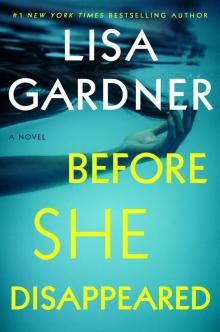 Before She Disappeared
Before She Disappeared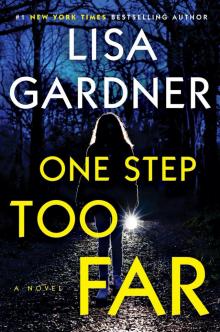 One Step Too Far
One Step Too Far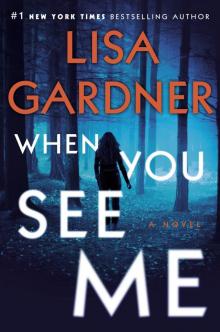 When You See Me
When You See Me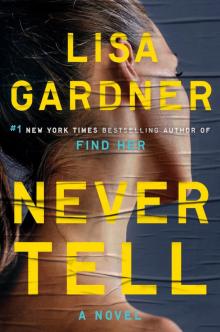 Never Tell
Never Tell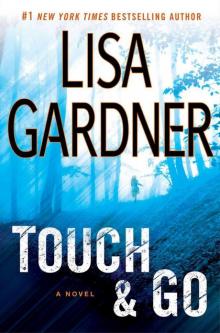 Touch & Go
Touch & Go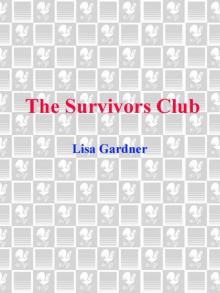 The Survivors Club
The Survivors Club MacNamara's Woman
MacNamara's Woman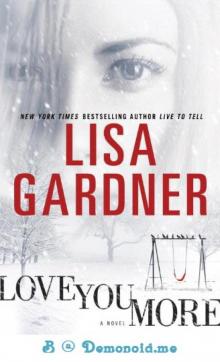 Love You More: A Novel
Love You More: A Novel Gone
Gone The Perfect Husband
The Perfect Husband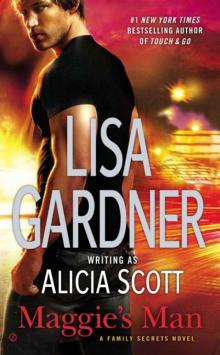 Maggie's Man: A Family Secrets
Maggie's Man: A Family Secrets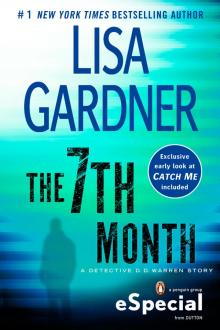 The 7th Month
The 7th Month The Neighbor
The Neighbor Hide
Hide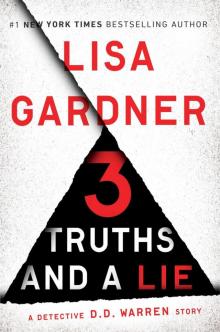 3 Truths and a Lie
3 Truths and a Lie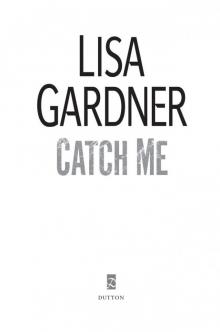 Catch Me
Catch Me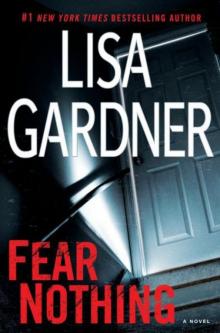 Fear Nothing: A Detective
Fear Nothing: A Detective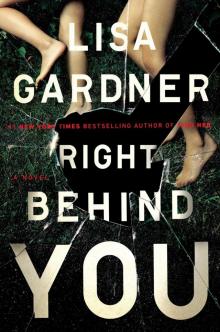 Right Behind You
Right Behind You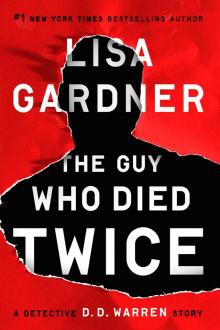 The Guy Who Died Twice
The Guy Who Died Twice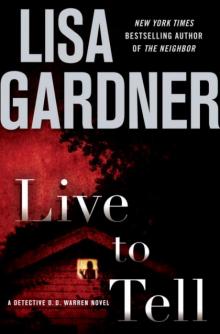 Live to Tell: A Detective D.D. Warren Novel
Live to Tell: A Detective D.D. Warren Novel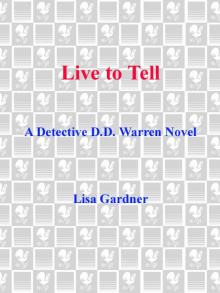 Live to Tell
Live to Tell Maggie's Man: A Family Secrets Novel
Maggie's Man: A Family Secrets Novel The Other Daughter
The Other Daughter Alone
Alone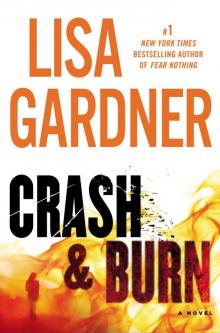 Crash & Burn
Crash & Burn The Detective D. D. Warren Series 5-Book Bundle
The Detective D. D. Warren Series 5-Book Bundle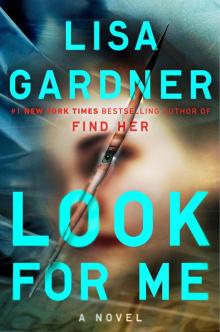 Look for Me
Look for Me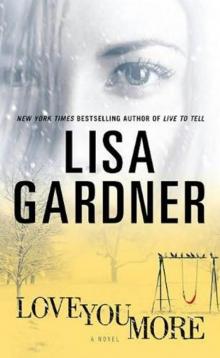 Love You More
Love You More The FBI Profiler Series 6-Book Bundle
The FBI Profiler Series 6-Book Bundle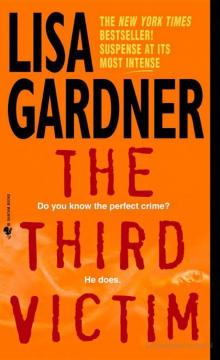 The Third Victim (Quincy / Rainie)
The Third Victim (Quincy / Rainie) Say Goodbye
Say Goodbye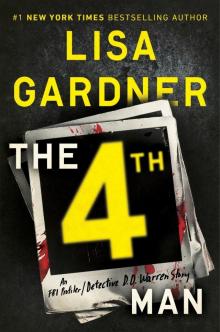 The 4th Man
The 4th Man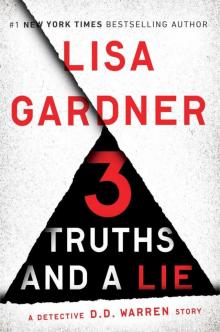 3 Truths and a Lie: A Detective D. D. Warren Story (Kindle Single)
3 Truths and a Lie: A Detective D. D. Warren Story (Kindle Single) Brandon's Bride
Brandon's Bride